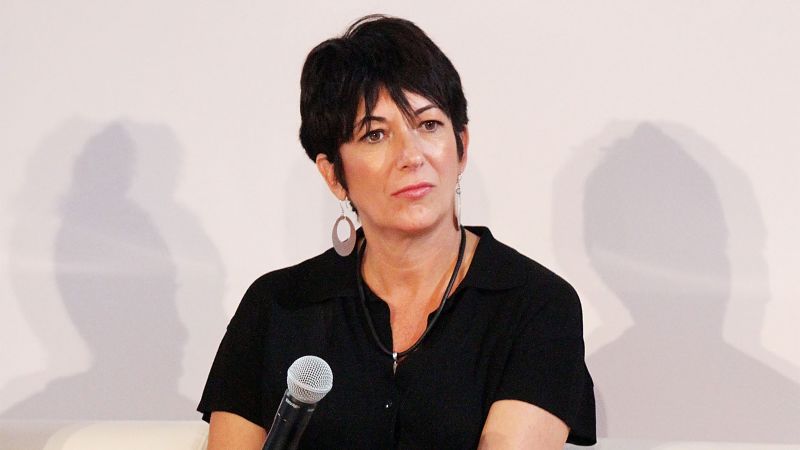Education
Ghislaine Maxwell’s Transfer to Texas Prison Camp Raises Concerns

Ghislaine Maxwell’s recent transfer to a federal prison camp in Bryan, Texas, has created a wave of tension within the facility’s minimum-security all-female units. While her attorney asserts that she is now in a safer environment, the implications of her presence have sparked concerns among both inmates and prison staff. Maxwell, who was convicted of sex trafficking minors in 2021 and sentenced to 20 years in prison, has transitioned from a more restrictive facility in Florida to a setting that typically houses non-violent offenders.
Upon her arrival, inmates at the Bryan facility were advised to exercise discretion when discussing Maxwell. According to Sam Mangel, a prison consultant, her status as a high-profile inmate has altered the camp’s previously relaxed atmosphere, making it “radioactive.” Mangel noted that other inmates are keen to maintain their comfort and avoid any disruptions during their sentences.
Reports indicate that some inmates are openly expressing their disapproval of Maxwell’s transfer. One inmate, identified as Julie Howell, remarked that she was “disgusted” by the decision. Following her comment, Howell was removed from a puppy-training program and subsequently transferred to a federal detention center in Houston, raising questions about the treatment of inmates who speak out against high-profile individuals.
Despite the less restrictive nature of the Bryan prison camp, Maxwell’s living conditions do not afford her the same privileges that many other inmates enjoy. For instance, she will not have access to programs such as the puppy training initiative run by Canine Companions, which trains service dogs with the help of inmates. The organization has made it clear that individuals convicted of crimes against minors are excluded from participating in their programs.
Questions Surrounding Her Transfer
Maxwell’s transfer has also drawn scrutiny regarding the justification provided by the Federal Bureau of Prisons (BOP). Her attorney, David O. Markus, stated that the move was made to ensure her safety, especially after she faced potential threats in her previous location in Florida. He expressed surprise at the criticism surrounding her placement in what he describes as a “more humane” facility.
The Bryan prison camp is known for its relatively relaxed environment, where inmates often engage in educational and vocational programs. However, Maxwell’s transfer to this minimum-security facility is unusual, as it is typically reserved for non-violent offenders. Questions have arisen on Capitol Hill, with Senator Sheldon Whitehouse seeking further information about the BOP’s decision-making process regarding her placement.
Maxwell’s current status has raised eyebrows not only due to the nature of her crimes but also because she has more than 10 years remaining on her sentence. It is uncommon for inmates with lengthy sentences for serious crimes to be transferred to facilities like Bryan, which cater primarily to white-collar offenders.
Impact on Inmate Dynamics
The presence of a high-profile inmate like Maxwell has the potential to disrupt the dynamics within the prison. Many women at Bryan have family members who visit frequently, and concerns have been raised about how Maxwell’s notoriety could affect visitation experiences. One former inmate, Jill Ford, mentioned that she would have worried about Maxwell’s presence during visitation periods due to the crowded conditions and the potential for heightened scrutiny.
As Maxwell navigates her new environment, it remains uncertain how her lack of access to various programs will impact her time in the facility. While she may experience a less restrictive environment compared to her previous location, the limitations imposed by her convictions will likely shape her daily life at the Bryan prison camp.
Maxwell’s situation serves as a reminder of the complexities surrounding the incarceration of high-profile individuals and the impact their presence can have on prison culture. As her case continues to unfold, both the public and officials will be watching closely to see how her experience compares to those of other inmates at the facility.
-

 Technology5 months ago
Technology5 months agoDiscover the Top 10 Calorie Counting Apps of 2025
-

 Health2 months ago
Health2 months agoBella Hadid Shares Health Update After Treatment for Lyme Disease
-

 Health3 months ago
Health3 months agoErin Bates Shares Recovery Update Following Sepsis Complications
-

 Technology4 months ago
Technology4 months agoDiscover How to Reverse Image Search Using ChatGPT Effortlessly
-

 Technology1 month ago
Technology1 month agoDiscover 2025’s Top GPUs for Exceptional 4K Gaming Performance
-

 Technology2 months ago
Technology2 months agoElectric Moto Influencer Surronster Arrested in Tijuana
-

 Technology5 months ago
Technology5 months agoMeta Initiates $60B AI Data Center Expansion, Starting in Ohio
-

 Technology5 months ago
Technology5 months agoRecovering a Suspended TikTok Account: A Step-by-Step Guide
-

 Health4 months ago
Health4 months agoTested: Rab Firewall Mountain Jacket Survives Harsh Conditions
-

 Lifestyle5 months ago
Lifestyle5 months agoBelton Family Reunites After Daughter Survives Hill Country Floods
-

 Technology4 months ago
Technology4 months agoHarmonic Launches AI Chatbot App to Transform Mathematical Reasoning
-

 Technology3 months ago
Technology3 months agoUncovering the Top Five Most Challenging Motorcycles to Ride





















